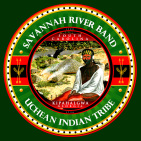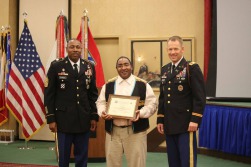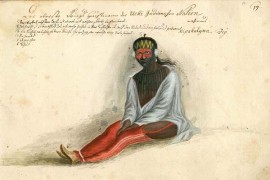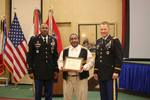"PAhA yOnû" We are the Spiritually Unconquered Indigenious "Uchean" Free People of Colored, Matriarchal Society.
The Savannah River Band of Uchee (Uchean) Indians is a matriarchal society, historically recognized by the South Carolina Royal Colonial Government in 1750.
Throughout the Colonial Period, the Uchee People often established towns in close proximity to those of the Creek People, but also were the sole occupants of some provinces. Uchee towns and villages once existed in many locations throughout Southeastern North America. Uchee villages were also established in Florida, where they became political allies of the Seminole Creeks. Many Uchee families were deported to the Indian Territory in the 1830s along with the Creeks and forced by the Federal government to live in a section of the Creek Nation, despite repeated requests to have their own tribal identity. The Muskogee-Creek Nation is federally recognized. The Euchee (Yuchi) Tribe of Oklahoma has elected leadership. It is currently considered to be a division of the Muskogee Creek Nation by the federal government,
The Muscogee-Creek Nation uses the Anglicized word, Euchee, for this tribe’s name. Bureau of Indian Affairs officials in Oklahoma use the word, Euchee, but when the Euchee (Yuchi) Tribe of Oklahoma applied for Federal recognition, BIA officials in Washington, DC struck out all references to Euchee and replaced it with Yuchi.
In contrast, colonial officials in South Carolina, and subsequently in Georgia, used the word (or word similar to) Uchee to label the Uchean people on the Lower Savannah River, Ogeechee to label the Uchean People on the Ogeechee River and Hogelogee for the Uchean people at the headwaters of the Savannah River. This traditional spelling was continued by the states of South Carolina, Georgia and Alabama. Therefore, henceforth, Uchee and Uchean will be used.
It should be emphasized that the Uchee People of the Lower Savannah River Basin were a different ethnic group than the Hogeloge Uchee of the Tennessee River Valley and Western North Carolina, who migrated into Savannah River Basin about the same time that the Province of Carolina was founded (1670). The two bands of Uchee probably shared many cultural traits, but they spoke different languages that may have been mutually unintelligible, or at least as different as Swedish and Norwegian.
The 1890 United States Census was the first to survey the so-called Five Civilized Tribes in the Indian Territory. It also gave special designation to the Uchee People as a distinct ethnic group and used that spelling, not Yuchi or Euchee. The Census quoted a book from South Carolina, Harry Hammond's South Carolina (1883) that confirmed the presence of Uchee on the Lower Savannah River. However, it was wrong in suggesting that they left no trace. As will be explained later, the boundaries of the Uchee Reserve in Allendale County, SC are preserved in a census tract and labeled so.
Hammond’s book has many errors in it, including the statement that Cofitachequi was a Uchee town on the Savannah River.
Here is the passage: “About one-eighth of the territory of the Uchees extended across the Savannah River into Aiken, Edgefield, and Barnwell counties. There is no estimate of their population numbers. Their Princess of Cutifaehiqui (Silver Bluff) entertained De Soto with great splendor, according to the narrative of the gentleman of Elvas (1540). They were absorbed by the Creeks, and have left no trace except in the name of a small stream in Silverton Township, Aiken County, and of a neighboring steamboat landing on the Savannah, Talemeco, after their great temple, which, it is said, stood there in De Soto's time.
Variety of names applied to Uchee People
The only word that the Uchee are definitely known to have called themselves in their own language is Tsoyoha, which means “Children of the Sun.” Other Anglicized names include Euchee, Yuchi, Yuchee, Yutsee, Roundtown People, Ogeechee, Geechee, Congoria, Tchogalea and Hogelogee.
Uchee tribes and organizations:
The Savannah River Uchee call themselves Uchee. One Uchee organization in Tulsa, Oklahoma calls its members, Yuchi. The other, in Sapulpa, Oklahoma , calls itself Euchee. A band of Uchee in northern Florida calls itself Euchee. Other bands in Eastern Tennessee and Alabama usually call themselves Yuchi. Colonial and state officials: Uchee was the preferred spelling used by South Carolina colonial and state officials.
The Uchee in Tennessee were labeled Hogeloge on maps.
Until the Cherokees conquered much of eastern Tennessee, the Upper Tennessee River was called the Hogeloge River, Roads, schools, parks and a stream near a former Uchee town in Russell County, Alabama are spelled Uchee. Several geographical place names in Florida use Euchee or Uchee. Historic name among Muskogee Creeks: On June 7, 1735, the leaders of the Creek Confederacy held a meeting with the leaders of the new colony of Georgia. “Shimelacoweche Mico or King from the Ogeeche’s”, Ogeechee the Anglicization of the Itsate-Creek word for Uchee at that time. It means “Water People.”
The contemporary Muskogee word for the Yuchi is Yocce, pronounced Yő : chē. However, Oklahoma Muskogee Creeks typically use Euchee in their English language publications. Colonial Era French Explorers: The French name for the Uchee in the Lower Savannah and Ogeechee River Basins was Oada or Oueda.
This is the Frenchification of the Creek word, We-te, which means “Water People.” The French used Hogeloge and Congoria for the Uchee Bands in eastern Tennessee.
The Cherokees called the Uchee, the Ani-yutsi, which combined the Cherokee prefix for tribe with a phonetic spelling of the Creek name for the Uchee.
Undoubtedly, all Uchee living in the Ogeechee and Lower Savannah River Basins are members of the Water Clan, since as will be seen below, all of their alternate names are related to Water.
When Yuchi from the Upper Tennessee River Basin settled on the Upper Savannah River Basin, they were clearly labeled, Hogeloge, on all European maps, in order to distinguish them from the other Uchee bands.
Uchee and Yuchi are Anglicizations of the Muskogee-Creek word for “Children of Water” – Uev -si, pronounced Ũwē : tshē. Ogeechee (as in the Ogeechee River) is the Anglicization of the Itsate-Creek name for the Uchee, Okasi, which is pronounced, Ō : kä : jzhē and means, “Children of the Water.



























